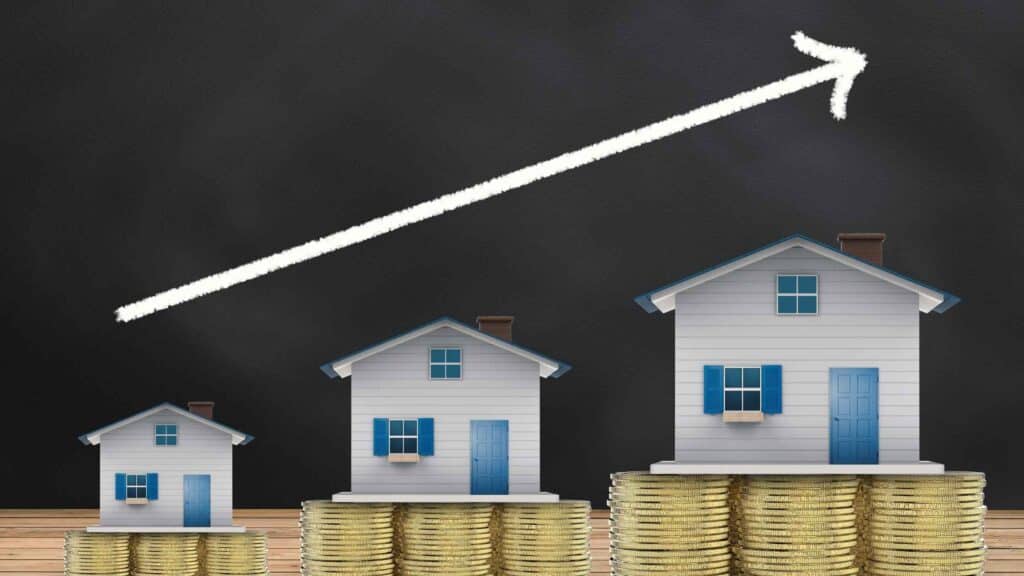When it comes to building real wealth, the debate between real estate vs. stock market investing is still raging in 2025—and for good reason. Both can build real financial freedom, but the paths look wildly different. One gives you control, physical assets, and cash flow.
The other offers liquidity, lower effort, and true set-it-and-forget-it potential.
But here’s the thing: there is no one-size-fits-all answer. The better question is: what are you trying to build?
In this post, I’m breaking down both options in plain English—not as a financial advisor, but as someone who’s tested both, built streams of income, and seen how they play out in real life.
Let’s settle the real estate vs stock market debate for 2025 once and for all—so you can make the call that fits your lifestyle, risk tolerance, and wealth goals.
Fundrise
What Real Estate Investing Really Offers (and What It Doesn’t)
Real estate gets hyped hard—and sometimes for good reason. If you want an investment you can touch, control, and potentially leverage into massive returns, this is it. But real estate isn’t as “passive” as influencers pretend it is.
The biggest advantage is leverage—you can buy a $400K property with $80K down and let appreciation and renters build the rest of your wealth.
That’s how ordinary investors end up sitting on seven figures. Real estate also creates cash flow if managed right, tax benefits through depreciation, and a hedge against inflation when prices rise.
But don’t sleep on the trade-offs. It’s management-heavy, especially if you go the landlord route. It ties up your capital, requires maintenance and repairs, and it’s not liquid. You can’t just “sell a window” if you need money.
Also, in high-interest rate environments like we’ve seen in 2023–2025, returns can be crushed if you bought at the wrong time or didn’t account for higher operating costs.
Verdict? Real estate is a wealth-building machine—but only if you’re ready to get your hands a little dirty and think long-term.
If you're upgrading your property or planning to renovate for higher rent or resale, Homestyler is a great tool to visualize and design your space before you spend a dime.
The Power of the Stock Market: Why Simplicity Wins for Many
On the other side, the stock market is about scalability, ease, and long-term compounding. With as little as $50, you can buy into the best companies in the world or build a low-cost portfolio that mirrors the entire U.S. economy.
It doesn’t require maintenance. It’s 100% liquid. It’s backed by decades of data showing consistent, inflation-beating returns over the long haul—around 7–10% annually when adjusted for inflation, depending on your allocation.
The big upside? You can invest from your phone and walk away. No late-night plumbing calls. No property taxes. No worrying about tenants damaging your drywall. You’re letting businesses do the work, and you get the growth.
But here’s where people get it twisted: the stock market feels intangible, especially for newer investors. It’s also volatile in the short term.
If you panic and sell during a dip, your return turns into a loss. And unlike real estate, you can’t use borrowed money as easily unless you’re playing with margin—which adds serious risk.
Verdict? The stock market is a time-efficient, scalable investment for people who prefer to build quietly in the background.
Real Estate vs Stock Market: What’s Riskier in 2025?
Let’s not pretend either one is risk-free.
Real estate comes with risks you can see: tenant damage, interest rate spikes, property value dips, or unexpected maintenance. But you have more control over outcomes—you choose the property, set the rent, manage the expenses, and physically own it.
Stocks carry market risk—recessions, political events, inflation, and wild swings you can’t stop. But you can diversify instantly, and the data shows the market always recovers—eventually.
The difference is emotional risk. It’s easier to hold onto a rental property through a rough patch than to hold your stocks when they’re down 30%. So ask yourself: how do you handle fear and uncertainty? That’s the real measure of risk.
If you’re just trying to get your hands on some extra cash before you start investing, check out these Apps That Give You Money- Highest Paying Apps of 2025 to put a little more in your pocket.
Cash Flow vs Capital Appreciation: What Matters Most?
If you want consistent monthly income, real estate has the edge—when done right. Rental income can outpace inflation, help you cover mortgage payments, and generate real cash you can use every month.
But don’t underestimate dividend stocks. ETFs like VYM or SCHD pay 3–4% annually, and that’s without toilets and tenant calls.
If your goal is long-term growth, the stock market wins for capital appreciation and ease of reinvestment. A $100,000 portfolio invested in total market ETFs could grow to over $500,000 in 25 years with consistent reinvesting. No management headaches. Just time and patience.
So if you’re young and in the wealth accumulation phase, stocks might be the cleaner path. If you’re looking for income in early retirement or want more control, real estate might serve you better.
If passive income is a priority for you—especially later in life—you’ll definitely want to check out my list of 29 Passive Income Ideas for Retirees for even more ways to create cash flow without clocking into a 9-to-5.
What I Personally Do (and What I’d Tell You)
I don’t believe in choosing between the two. I believe in using both to build layered wealth.
Early on, I leaned heavily on the stock market. It let me automate my investments, build a base, and stay focused on growing my income. But once I build up enough capital, I plan to use real estate to add cash flow, leverage, and tax efficiency to the mix.
If I had to start from zero in 2025, I’d do it the same way:
- Start with stocks (because of accessibility)
- Build up capital through income + side hustles
- Deploy into real estate when I can buy smart and hold long
It’s not about being “Team Stocks” or “Team Real Estate.” It’s about using each one for what it does best.
What’s More Volatile: Wall Street or Your Tenants?
Let’s get one thing straight — both real estate and the stock market can keep you up at night, just in different ways. Stocks can drop 10% in a week because someone sneezed during a Fed meeting. Real estate?
It’s slow-moving but can sucker-punch you with a surprise roof leak or a tenant who thinks rent is optional.
In 2025, stock market volatility has been like a rollercoaster built by Elon Musk — wild, unpredictable, but still somehow heading upward over time.
Meanwhile, real estate’s version of “volatility” is watching mortgage rates creep past 6% and wondering if buyers will still exist next year.
Here’s the real deal: stocks are more emotionally volatile. Real estate is more logistically volatile. One will test your patience, the other will test your calendar.
If you do dive into real estate, make sure you’re covered. I use Lemonade for property insurance because it’s fast, affordable, and 100% digital — exactly how insurance should be.
How Much Cash Do You Need to Get in the Game?
If you’ve got $50 and a smartphone, you can own a piece of Apple before dinner. That’s the beauty of the stock market. Investing in stocks is very simple to start. No fancy paperwork. No awkward banker meetings. Just a few taps and you’re in.
If you're just getting started with investing and want a clean, user-friendly platform to buy your first stocks or crypto, I highly recommend using Coinbase. It’s built for beginners and makes the process ridiculously easy.
Real estate? Whole different beast. You need a down payment. Closing costs. Maybe even some extra cash for repairs or upgrades.
And unless you’re house hacking or buying with a partner, the barrier to entry is real. You can’t exactly walk into Zillow and grab a duplex for $100.
Bottom line? The stock market is the gateway drug to investing. Real estate is the long-term commitment that takes planning, saving, and usually a spreadsheet or two.
If blogging is part of your strategy for generating extra income to invest, I break down exactly what platform to use in my Squarespace vs WordPress: Which Is Better for Blogging? comparison.
Cash Flow vs Growth: What Do You Want More of?
This is where things get interesting. Real estate is the king of cash flow. If you buy smart and manage well, you’re putting money in your pocket every single month.
That rental income can cover the mortgage, build equity, and give you options — like paying for your kid’s tuition or quitting that soul-sucking job.
Stocks? They’re usually more of a growth play. Sure, you can get dividend income from certain ETFs or blue-chip companies, but for most investors, the magic is in compounding over decades. If you’re reinvesting those dividends, it snowballs — but it takes patience.
So ask yourself: do you want money now (real estate) or more money later (stocks)? Better yet, stack both and get the best of both worlds.
Liquidity: Can You Get Your Money When You Need It?
If you need to access your money quickly, stocks win by a landslide. You can sell shares in seconds. It might sting a little if you’re down, but the cash is yours, no phone calls required.
With real estate, it’s not that simple. You want your cash out? You better find a buyer, sign some papers, and pray the deal doesn’t fall through at closing. And that’s if the market’s hot. If it’s cold? Good luck.
Liquidity isn’t sexy — until you need it. That’s when you’ll wish you had some assets that don’t require a realtor, a lawyer, and three months of drama to turn into spendable dollars.
Which One Gives you More Control?
Let’s talk control. Some people love it. Others want nothing to do with it.
Real estate gives you control. You decide the rent, you screen the tenants, you choose when to renovate or refinance. You can force appreciation and actively increase the value of your property.
Stocks? Not so much. You’re riding the market wave like everyone else. You don’t call the shots — the company’s CEO does. If they mess up, you’re along for the ride. You’re betting on someone else’s execution.
So if you like to get your hands dirty and call the shots? Real estate is your playground. If you’d rather plug in your money and go build something else? The stock market’s got your back.
Tax Time: Who Gets More Breaks?
Here’s the dirty little secret of real estate: the IRS loves landlords.
Depreciation. Write-offs. 1031 exchanges. You can shelter so much of your income it’ll make your W-2 friends jealous. Real estate investors play a whole different tax game — and the rules are in their favor.
Stocks? You’ll pay taxes on dividends and capital gains unless you’re using a tax-advantaged account like a Roth IRA. And if you get trigger-happy with your trades, say hello to short-term gains taxes.
If you’re looking to lower your taxable income, real estate gives you more tools. But it also comes with more complexity. Be ready to learn or hire someone who has.
If you're serious about using tax-advantaged accounts like a Self-Directed IRA to invest in real estate or alternative assets, check out Rocket Dollar — it's one of the best platforms for flexible investing with tax benefits.
What’s Winning in 2025?
Let’s not ignore the current landscape. Right now, mortgage rates are still sitting above 6%, and home affordability is stretching thin in a lot of cities. That makes real estate trickier for first-time buyers — but not impossible.
Meanwhile, the stock market is recovering from a rough ride over the past year. Tech stocks are rebounding. Energy is shifting. And the S&P 500 is slowly climbing out of its hole. For long-term investors, this is opportunity season.
Translation? In 2025, the stock market might be the smarter short-term play — but real estate is still a beast if you’ve got the capital and the patience to play the long game.
Most commonly asked questions based on real estate vs. stock market
You asked, and I listened. These are answers to the most commonly asked questions about real estate versus stock market:
Is real estate a better investment than the stock market?
It depends on your goals. Real estate offers more control, leverage, and monthly cash flow—but comes with more work and less liquidity.
The stock market is simpler, more scalable, and historically reliable, but can be emotionally harder to manage during downturns.
Which is safer: investing in real estate or stocks?
Both have risks—just different ones. Real estate can be safer in stable markets with consistent rent demand, while stocks are safer when diversified and held long-term. Emotional discipline is the real X-factor.
Can I invest in both real estate and stocks?
Absolutely. In fact, that’s what many successful investors do. Stocks help you build a base and grow quietly. Real estate adds cash flow and control. The combination gives you both scale and stability.
Which one builds wealth faster?
In ideal conditions, leveraged real estate can grow wealth faster due to appreciation and cash flow. But for most people, stocks are easier to scale earlier and require less upfront capital. It’s less about speed and more about consistency.
What Are Millionaires Actually Doing?
You know what’s funny about the whole real estate vs stock market debate?
Most millionaires own both. That’s not an accident. It’s strategy. Data from multiple wealth studies show that high-net-worth individuals split their assets between real estate and the stock market.
Why? Because they know both play different roles in building wealth.
Real estate gives them cash flow, tax breaks, and physical assets they can control. The stock market gives them scale, growth, and liquidity without having to manage properties or deal with tenants.
Smart money doesn’t pick sides. It picks the right tool for the job. Millionaires aren’t arguing about which is better on Twitter — they’re stacking assets while everyone else debates in the comments section.
For stock market research, I always recommend The Motley Fool. Their stock picks and insights have helped thousands of investors stay ahead of the curve — including long-term wealth builders.
What Scales Faster As You Make More Money?
This is a question nobody asks — but should.
When you start making more money from your career or side hustles, the investing game changes.
Real estate scales slower because each property requires a lot of capital and time to acquire. You don’t just buy a house every payday. You save, plan, hunt for deals, and close.
Stocks scale a lot over time because they’re frictionless. You can throw $500 or $50,000 into your brokerage account and put that cash to work immediately. No phone calls. No paperwork. No inspections.
That’s why most wealthy people build their real estate portfolio slower but dump excess cash into the stock market aggressively. They use real estate for stability and cash flow — and stocks for speed and scale.
The Best Strategy Nobody Talks About: Use Both — But In Phases
If you’re just getting started in your 20s or 30s, here’s the move most people overlook:
- Start investing consistently in the stock market early.
Build that habit. Use index funds. Let it grow while you focus on increasing your income. - Once your income improves and you’ve built some capital? Deploy into real estate.
Buy a small rental property. House hack. Or partner with someone smarter than you. - Use real estate for cash flow. Use stocks for growth. Repeat.
This is how real wealth is built — without having to “choose” between them. Stocks help you stack quickly while you’re still building income. Real estate gives you freedom cash flow and long-term tax advantages when you start scaling.
The goal isn’t to pick one forever. The goal is to build a system that works for you at every stage of your life.
And honestly, before you throw big money into real estate or the stock market, it helps to have a solid game plan — here are some of my best Financial Planning Tips for New Entrepreneurs if you’re in that stage right now.
If you’re building extra income to invest by blogging or creating a personal brand, I always recommend starting with Bluehost which only costs $2 a month when you use my referral link.
It’s Not Real Estate vs. Stocks — It’s Real Estate and Stocks vs. Missing Out
Let’s be real. Most people debating real estate vs stock market aren’t even investing yet. They’re stuck reading articles and watching YouTube videos because they’re afraid of getting started.
But here’s the truth: The worst investment is doing nothing. The first $1,000 you invest is more important than picking the perfect asset. The first rental property you buy will teach you more than 100 blog posts.
The first $100 you put into the S&P 500 will show you how compounding really works. This isn’t about teams. This is about taking action. Stocks build wealth quietly. Real estate builds wealth actively.
The wealthiest people? They use both — relentlessly.
At the end of the day, real estate vs stock market is just one piece of the puzzle — if you’re serious about wealth, I highly recommend reading my guide on How to Become Rich: 20 Proven Strategies for Building Wealth.
Final Thoughts On Real Estate Vs. Stock Market: Where Should You Put Your Money Right Now?
The truth is, there’s no single right answer—just the right answer for you.
If you want simple, automated wealth building, start with the stock market. If you want more control and cash flow and you’re ready to learn how to manage it, real estate can take you further.
The smartest investors? They learn the game of both. Then they use them like tools to build a life that works on their terms.









